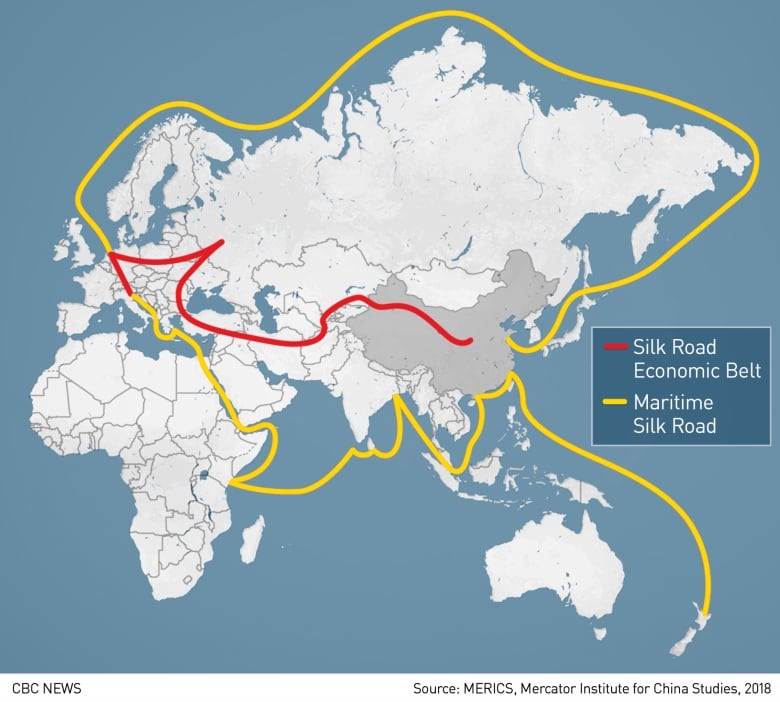Fundamentals in the Best/Worst-Laid Plans of Mice and Men
"This is all part of China's education as a rising power. It has taken a flawed model that appeared to work at home, building large infrastructure projects, and hubristically tried to apply that abroad.""Historically, most infrastructure booms have gone bust. Whether China can avert that fate may depend on its ability to renegotiate loans with countries now in urgent need of debt relief.""If China is unable or unwilling to provide sufficient relief to its borrowers, it could find itself at the centre of a debt crisis in developing markets."Jonathan Hillman, author, The Emperor's New Road"In domestic Chinese media, the frequency of the topic occurring has come down a lot in the last few years, partly to downplay China's overseas expansion ambitions.""I expect this retrenchment to continue."Chen Zhiwu, professor of finance, Hong Kong University"Volatile Sino-U.S. relations and more restrictive access to overseas markets for Chinese companies have prompted a fundamental rethink of growth drivers by Beijing's top economic planners.""Naturally, if stste-owned enterprises decide to switch back to the domestic market in order to follow the leadership's wishes, the budgeted financial resources for overseas investments will reduce accordingly."Yu Jie, senior research fellow on China, Chatham House think tank, United Kingdom"This has to be the time for a rethink. It's been such a priority for Xi Jinping, he's invested so much in it that he's not going to just turn the lights off.""But they need to seriously implement their own debt sustainability analysis and their own social and environmental impact tools."Kevin Gallagher, director, Boston University Global Development Policy Center
 |
Workers take down a Belt and Road Forum panel outside the venue of the forum in BeijingBAKER/AFP via Getty Images |
When China initially embarked on its ambitious Belt & Road project, it had plans to link itself to a new 'Silk Road', an enterprise that was meant ultimately to expedite Chinese trade and transport and shipping globally, the trade colossus thinking ahead to the future -- its future -- as the world's major producer and seller of goods. Its plan to finance major infrastructure projects was sold to countries in Africa and the Middle East and Europe convincingly assuring them that this would modernize their countries for the future in new highways and bridges and other forms of infrastructure.
That many of these countries had no basic infrastructure of the type Beijing was describing, or insufficient or outdated ones was because they lacked the financial wherewithal to build them. Beijing obviously reasoned and explained to any governments that were skeptical that the Belt & Road initiative would benefit all concerned; give immediate employment to their nationals in building the projects, and extend employment through operational ties that would ultimately result, enriching both China and the countries it was investing in, so they could pay back the huge loans.
Some economists raised concerns that this would result in massive indebtedness, that some of those countries would never be capable of extracting themselves from. And this was all well before anyone might have thought ahead to a massive economic blow that would strike globally with the introduction from China to the world at large of a global viral pandemic devastating world economies. Long before the Belt & Road initiative rang a bell of opportunity to Beijing it was busy investing in other countries' natural resources.
| Security personnel stand guard near a "Golden Bridge on Silk Road" decoration for the Belt and Road Forum outside the China National Convention Center in Beijing earlier this year. (Jason Lee/Reuters) |
As it did in Venezuela, reaching agreement with Hugo Chavez where between 2007 and 2013 the China Development Bank loaned out to Venezuela close to $40 billion with Venezuela's oil wealth as surety, boosting Hugo Chavez's plan for "a Great Wall" erected to fend off U.S. hegemonic reach. And then Venezuela's oil resources ran into trouble with refining problems because no funding was directed to upgrading its oil infrastructure. After investing to that degree Beijing felt compelled to continue in the face of Venezuelan mismanagement and lent out another $20 billion, and all too soon Venezuela defaulted.
That might have been a lesson in not hedging bets, failing to look ahead to the future when all the signals were already in evidence. But the Belt & Road followed nonetheless. "Chinese foreign policy and policy bank officials entered into their outsized economic and political relationship with [Venezuela] with a combination of hubris, ambition and naivete. [This] has contributed to the region's worst economic, humanitarian, and political crisis in decades", wrote Matt Ferchen of Merics, a think tank based in Berlin.

 |
|
|

Labels: Africa, Belt & Road, China, Economy, Europe, Infrastructure, Investment, Latin America, Middle East, New Silk Road, Trade Links, Withdrawal
0 Comments:
Post a Comment
<< Home